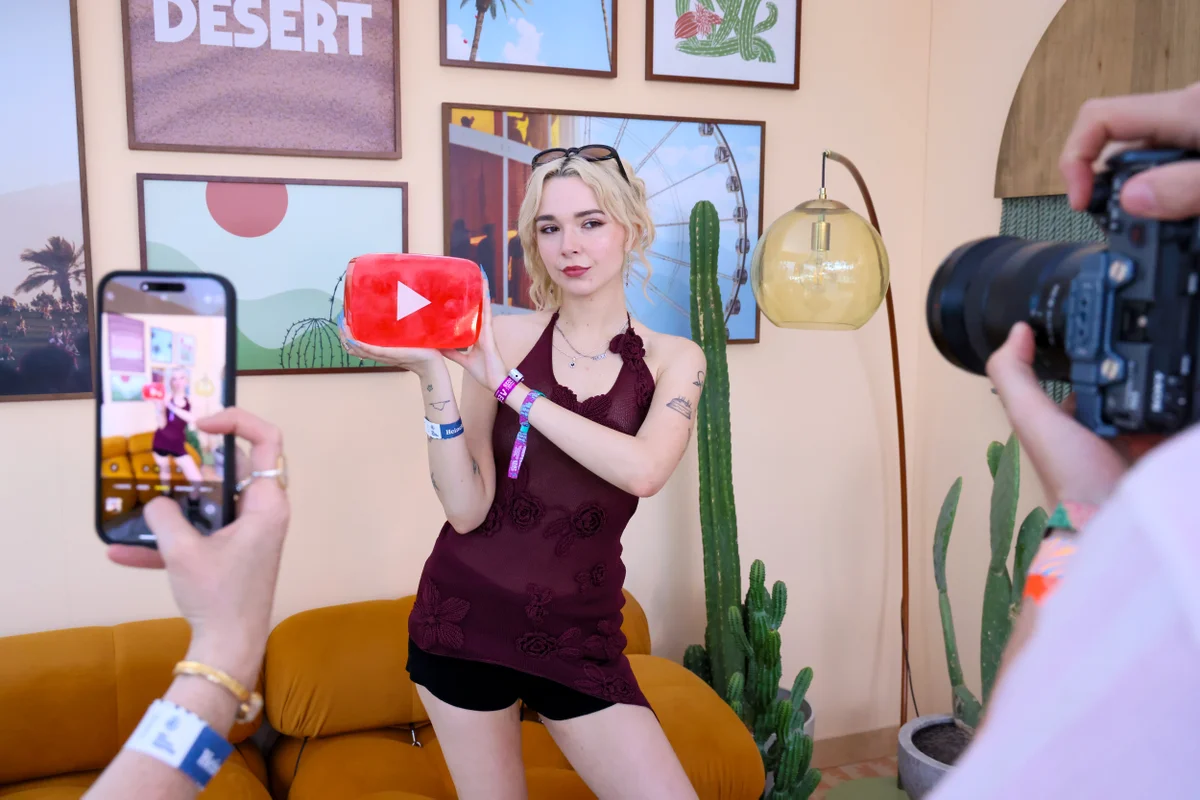By Maja Anushka
When I started making YouTube videos in my bedroom at 12 years old, the term ‘YouTuber’ was only just beginning to enter public consciousness. It took many more years to crystallise into a term people understood, let alone took somewhat seriously. Even towards the tail end of my decade making videos, I watched with mild amusement as the adults around me squirmed, trying to remember what exactly this hobby of mine was. “How are your friends, love?” one well-meaning family member asked. “The ones on the computer?”
Some 15 years on from my first upload, there are now many terms used to describe someone who makes videos for people to watch on the internet. They range from the specific (gamer, streamer, TikTokker) to the vague (content creator) to the often mocked (influencer). Now, YouTuber’s Creator Consultation is pushing for the UK government to recognise online content creation as a legitimate profession. The manifesto calls for better financial support, accreditation, and representation for ‘Creators’ on the Creative Industries Taskforce.
What’s interesting about these labels – and what marks one of the unique differences between traditional media careers and content creators – is that they are self-appointed. It requires you to name yourself as something which may not yet be true. It demands a ‘fake it until you make it’ attitude, because you just have to start. You do not get a confirmation email one day. There is no university degree to spit you out with 50,000 subscribers and the assurance that yes, officially: You Are A Minecraft Streamer.
To be an influencer, you sort of have to just start believing you are one, often far before the numbers match up with your ambition. It’s all in your head until it’s provably on the screen, which is part of the reason why everyone enjoys laughing at influencers in the wild. From the outside, there’s a potent sense of delusion to the whole affair.
But from the inside, it’s work. Endless, constant, brilliant work. For me, the most jarring aspect was the internal work of becoming the advertised thing. As a content creator, your identity is the product. You live and think inside the thing which you are trying to get people on board with, and you can’t clock out of being you, so you’re always working, even when no one else is around.
And then there’s the practical, actual work. My gang of kid YouTubers were sometimes pulling off full-scale productions. There were scripts, sets, filming schedules, days and nights spent editing, and thousands of pounds of equipment being hauled around.
At the end, if we were lucky, we’d sit back for a day or two and be pleased with what we’d made. But the engine always ticked on. What next? How to stay ahead of the curve? How to remain in people’s attention? And so we went again. We still straddled the gap between childhood and teenagedom, most of us just starting our first part-time jobs; it was the greatest discipline we’d ever been exposed to.
And it was a discipline that came from nowhere but ourselves. The motor of the ambition was us, and the whole thing was such fun, and so it became incredibly easy not to notice that you’d spent 16 hours that day just filming and editing, and perhaps forgotten to eat, or to go outside at all. We realised quickly that the lines between ‘hobby’ and ‘full-time job’ were impossible to distinguish.
And if that work finally turned into success, what then? We had no media training. No one turned up to give us any advice on how to handle being in the public eye. Financially, it was a disaster: we knew nothing about earning and saving money, or how to report extra income to the government.
Over a decade later, there is still remarkably little support for content creators outside the learned wisdom of the communities themselves, despite the booming industry of online video. In 2023, the YouTube creative ecosystem contributed £2 billion to the UK’s GDP. It supported over 45,000 jobs. ‘Content creator’ is fast becoming the generational ambition for Gen Alpha. How, then, is it still not a ‘real job’?
There are plenty of reasons why working on social media is still not taken seriously. But it’s the ignorance of older generations, who, critically, tend to be in charge of bureaucracy, which is keeping this industry so far behind where it should be. Digital social spaces are continually miscast, misunderstood, or straight-out ignored by those not in them, despite content creatorship being long embedded into our economy and culture.
The time for formal recognition of the talent, effort, and revenue being produced on YouTube is well overdue. We started calling ourselves YouTubers before it really meant anything; as with everything else, we just did it. It’s about time everyone else caught up.
